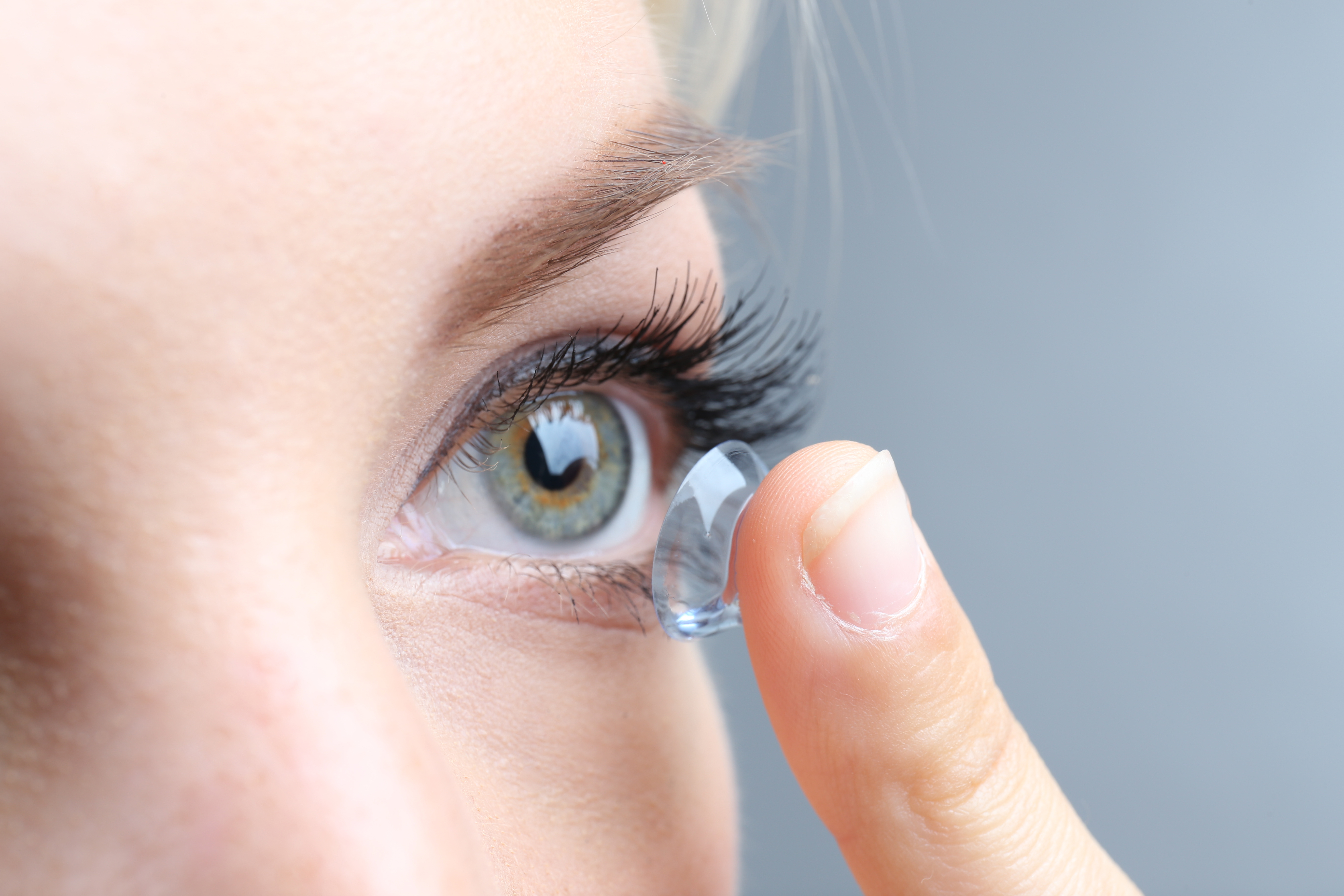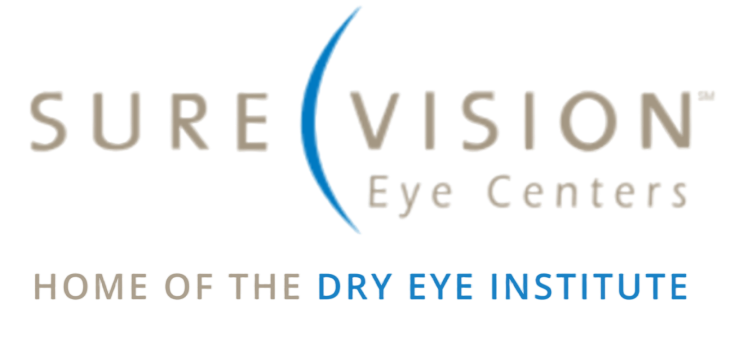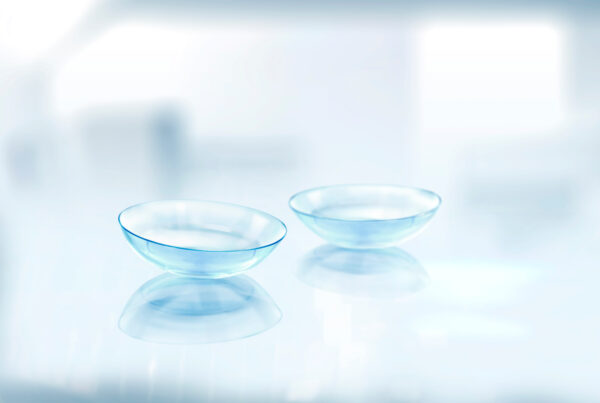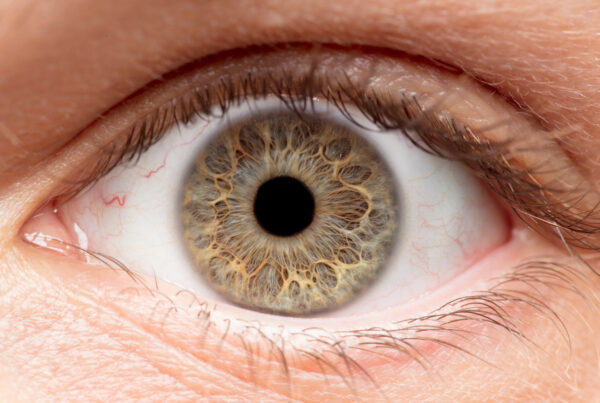
Do you hate the way your contacts feel, move, fall off, get stuck, get lost…but love the way you see when you wear them? Well, you’re living in the past. It’s even worse when you have dry eyes, allergies, astigmatism, corneal scars, RK surgery, keratoconus, and you can’t see well without contact lenses. Toss the thick, heavy glasses that make you look weird and step into the future with Specialty Contact Lenses.
Sure, lots of people can order contacts online, pop them in and be happy, but if that’s not you, consider this. Soft contact lenses are like buying clothes off-the-rack. They only come in certain sizes and strengths, and if that doesn’t fit you, try another rack. If they only make your dress in size 8 or 9 and you need an 8½ you either put up with it being too tight or too loose. That may be OK for clothes but doesn’t work so well for contact lenses. If you have distorted corneas, astigmatism, high prescriptions, ocular surface disease (dry eye disease, allergies, etc.), it’s not just the size of the lens that makes a difference. The vision needs of these patients are often best met by more personalized vision-correcting devices, known as Specialty Contact Lenses.
The trouble is that Specialty Contact Lenses are not something that you can just order. They need to be fit to your eyes and your needs. To use the previous analogy, it’s like having your clothes tailor-made. They fit you the way you need. Look great, the way you want. They feel incredible. Don’t get your clothes tailor-made? It’s your eyes and your vision we’re talking about. Not just a suit or dress that you wear a few times a month. You use your eyes and need your best vision all day, every day.
It takes special instruments that measure the surface of your eye, the shape of your cornea, the strength you need to focus clearly. Older instruments that were used for years to fit contact lenses, no longer are the state-of-the-art for this. The fitting is like a tailor-made suit as well. It takes expertise, and often a few visits to modify the lenses to give you the best results. It takes special fitting sets for different designs of lenses and these are expensive and not available at most retail contact lens shops.
Some of the best Specialty Contact Lenses are called scleral contact lenses; these large, rigid lenses are designed to fit under your eyelids, and don’t even touch your cornea. This fitting design allows the round, regular contact lens to become your new focusing surface to essentially cancel out the irregularities of your cornea. They are called scleral lenses because they rest on the white part of your eye, the sclera. That makes them incredibly comfortable. The cornea has the second-highest concentration of sensory nerves in your body so a contact lens sitting on your cornea has all those nerves that can get irritated with wear, dust, and dryness. Your sclera has very few sensory nerves so most people cannot even feel the scleral lens after a long day, or in dust or wind.
Corneal scars often cause distorted vision that cannot be corrected with glasses. A corneal scar produces an effect similar to looking through a scratched, broken, or dirty window. The scleral lenses can reduce this distortion and give you improved vision. Patients with scars due to injury or infections such as shingles or herpes simplex can often have their vision improved significantly with a well-fit scleral lens.
Patients with high prescriptions, such as extreme nearsightedness, can also have their vision improved with scleral lenses. Strong nearsighted glasses change the size of what you see to make it look smaller. Soft lenses may not be available in high strengths, or stable enough on your eye to provide consistently clear vision. Scleral lenses do not have the same minification effect as glasses. Since they are made-to-order for your needs, they are more stable than soft contact lenses.
When a scleral lens is inserted onto your eye, it is filled with a non-preserved solution. This solution is maintained between your eye and the scleral lens throughout your entire day of wear. Due to the liquid chamber that is created between the lens and the cornea, scleral lenses are also successful in relieving the symptoms of dry eye disease and other ocular surface diseases when eye drops, or other treatments have not been successful.
Patients that have undergone surgeries or other cornea disease treatments, such as corneal transplants, often rely on scleral lenses to improve their quality of vision. Even though the transplanted cornea solves issues like scars, distortion, opacities, and impaired function, the transplant can still be irregular and need the corrective optics provided by scleral lenses. Patients with corneal transplants frequently achieve clear, comfortable vision with an appropriate specialty lens.
If you have been diagnosed with any of the conditions above, or your vision has always seemed unsatisfactory with standard glasses or contact lenses, or if you just hate your current contact lenses, you may be a specialty lens candidate.



